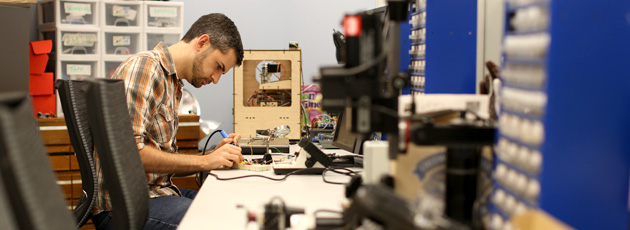Isaac Record


I am a teaching professor at Lyman Briggs College, Michigan State University, where I am the Founding Director of the Collaborative Experiential Learning Laboratory (CELL). I teach courses in philosophy of science, science and technology studies, and critical making. I have an active research agenda investigating how technology affects what we know. Initially, I focused on scientific instruments and computers in nuclear science. Currently, I am investigating the circulation of knowledge online and I am exploring uses of technology in the classroom. My research seeks to situate our epistemic circumstances within a background of values, capabilities, and material and social technologies. I have a PhD from the Institute for the History and Philosophy of Science and Technology, University of Toronto.
My book about knowledge on the internet, written in collaboration with Boaz Miller, is currently under review. In the book, we advance a novel theory of practicably responsible belief in technological contexts and apply this theory to an assortment of technologies and practices, ranging from autocompleted search results and deepfakes to GPS wayfinding and social media sharing. In 2024, we were Visiting Fellows at SOCRATES. In 2023, we won a place at the Ann Johnson Institute for STS Book Manuscript Workshop. In 2022, we were Visiting Fellows at the Center for Advanced Internet Studies.
Critical Making is a collaborative process that combines critical thinking and constructivist making, encouraging practitioners to alternate between two contrasting modes of engagement and open a space for new forms of engagement and understanding. I use Critical Making as a teaching method in my classroom, and I am studying learning outcomes in these classes. My initial study asks what students learn about the "wicked problem" they are trying to respond to, and about the value and practice of teamwork, interdisciplinarity, and physical model-building. Preliminary findings suggest that students learn a lot about these things, and my next step is to investigate how the experience of this class contributes to their sense of belonging in the college and their major, and their sense of competency in the problem topic, in their home discipline, and in the other disciplines we explore in the class (e.g., ethics, history, sociology, and philosophy of science and technology). In 2023, I delivered a TEDxMSU talk on this project.
See my research page for more!
LB 322A: Advances in Science and Technology.Topic: “Critical Making to Solve Wicked Problems" (hover for description)
MC 459: Science, Technology, Environment and Public Policy Capstone.(hover for description)
LB 492: Senior Seminar.Theme: The University of the Future (hover for description)
LB 240, Bioethics: Theories and MethodTopic: “What is health?" (hover for description)
Writing letters is part of my job, so you never need feel awkward about making a request.
It is my policy to write a letter only when I am confident that I can write a strong letter of support. This means that I must know you well enough to speak with confidence about your performance, whether as a student, researcher, or another position. It also means that I will need your help assembling the pertinent details of your case. Finally, I will need all the relevant information at least two weeks before the first deadline. Even when meeting all three of these conditions, I may have to decline your request if I am already overcommitted -- therefore, it is helpful to contact me as early as possible.
I receive many requests for letters each semester. As an aid to my own organization, I ask that you fill out this form.